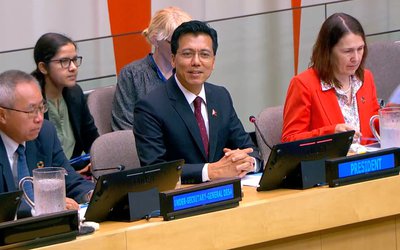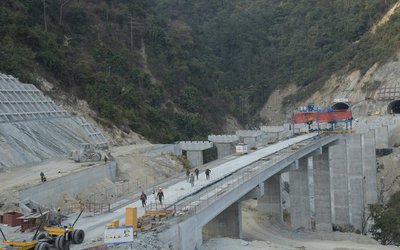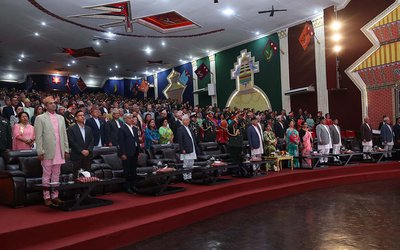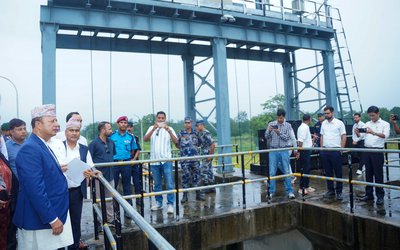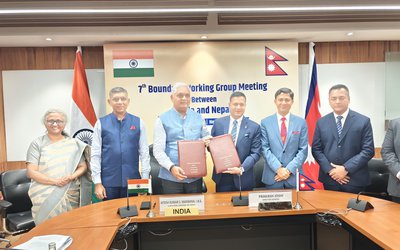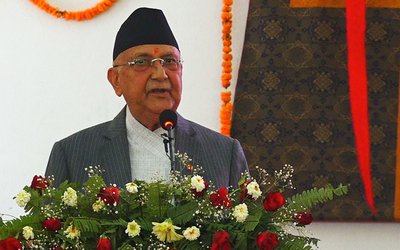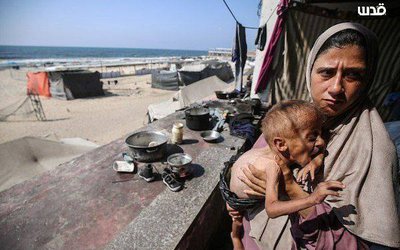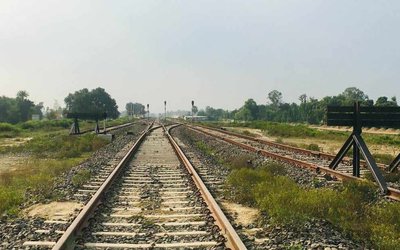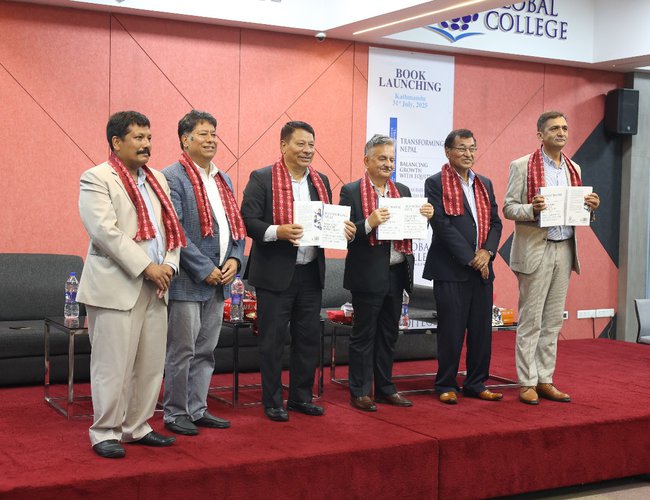
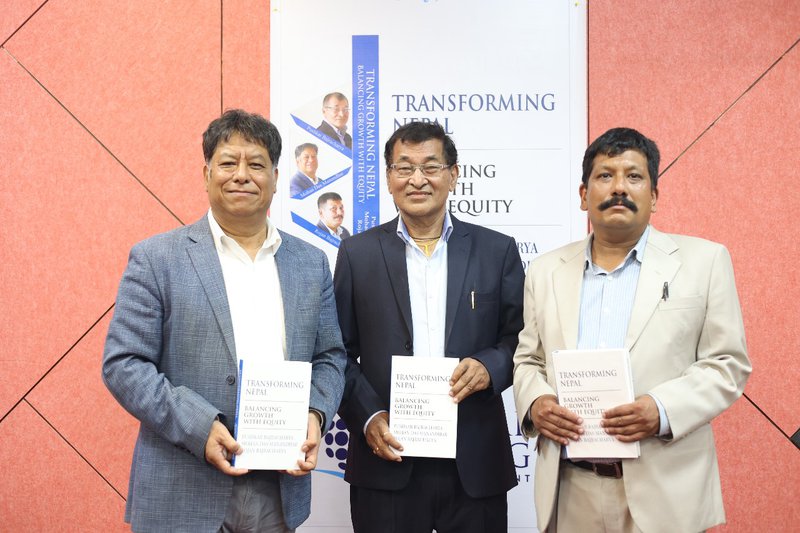
Since Nepal's transition to democratic governance seven and a half decades ago, the country has been striving to evolve into a prosperous nation, as emphasized in the preamble of the Federal Democratic Republic Constitution (2015).
The preamble envisions growth, prosperity, equality, and justice to enhance the well-being of its citizens. However, despite the unwavering support of the Nepalese people for various political movements, the dream of achieving prosperity as a nation remains unfulfilled.
Amidst ongoing discussions on Nepal's path to prosperity, the
book "Transforming Nepal: Balancing Growth with Equity," authored by Prof. Pushkar Bajracharya PhD, Mohan Das Manandhar, and Rojan Bajracharya, offers insights into this complex issue.
The book was officially launched on Thursday, July 31, 2025, with the presence of Deputy Prime Minister and Urban Development Minister Prakash Man Singh, Former Finance Minister Surendra Pandey, and Vice Chancellor of Kathmandu University, Prof. Dr. Achyut Wagle.
By examining Nepal's socio-economic landscape, the book introduces a framework for prosperity and well-being, evaluates the country's current initiatives, and provides key recommendations for a transformative journey. It advocates for Nepal to pursue a path of sustainable growth by utilizing resources efficiently while prioritizing social equity and justice.
The book comprehensively covers all aspects of the economy and proposes innovative solutions to utilize resources efficiently. It emphasizes the importance of freedom, good governance, and political stability for these solutions to be successful. Without good governance, development plans may fail to achieve their goals, increase costs, and reduce benefits, as seen in Nepal's current situation. The country faces challenges due to inefficiency and geopolitical factors, leading to high development costs and resource gaps in key sectors like agriculture, forestry, industry, tourism, ICT, and water resources.
To address these challenges, Nepal needs to prioritize health, education, and infrastructure development. The book suggests implementing a total health insurance system, with the government subsidizing premiums based on household income and conducting regular reviews. Education is also crucial, with a focus on developing skills and knowledge to meet global standards.
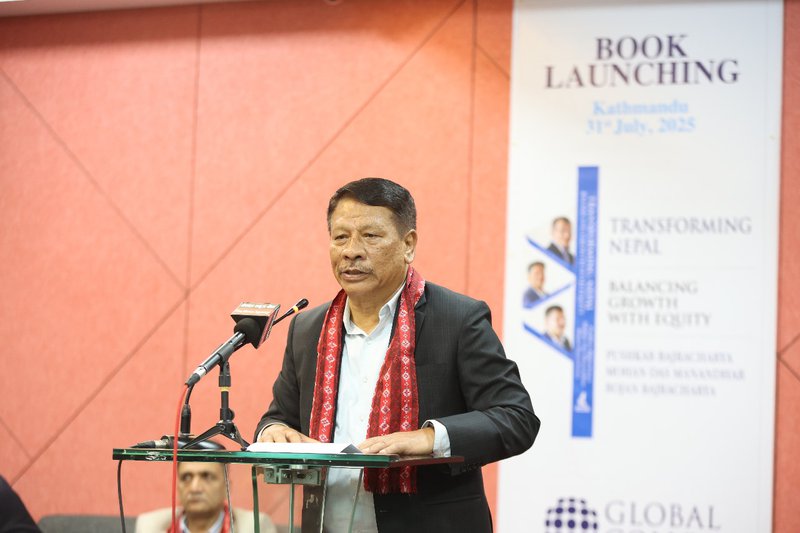
Improving infrastructure is essential for new projects, while addressing social exclusion and discrimination through constitutional measures is necessary. Creating jobs linked to natural resources and improving the investment environment can help alleviate poverty and boost economic growth. Additionally, transforming the education system to adapt to advancements like AI is crucial for future development.
Speaking in the book launching program, deputy prime minister and urban development minister, Prakash Man Singh remarked that the book is an important knowledge source to enhance contemporary public discourse in Nepal and expects to guide further planning and policy formulation and implementation process of Nepal. Former finance minister Surendra Pandeyviewed although political development was debated much in Nepal, debate on economic development was grossly missing. "The book has come at a time when the country is in urgency of triggering economic growth," he observed.
Speaking at the book launch as the reviewer, Prof. Achyut Wagle, the Vice Chancellor of Kathmandu University, emphasized the significant challenge of writing a comprehensive book on Nepal's economy in today's era dominated by social media.
The book, based on an analysis of numerous published works and updated with data from 2023-24, aims to advocate for a fundamental shift in the nation's policies, vision, and actions to address longstanding structural and developmental issues.
It provides a fresh critique of current policies and planning, identifies opportunities in key sectors like ICT, hydropower, agriculture, and tourism, and raises important issues such as land fragmentation, fiscal-monetary connections, human resource planning, and the ongoing debate on federalism and economic models.
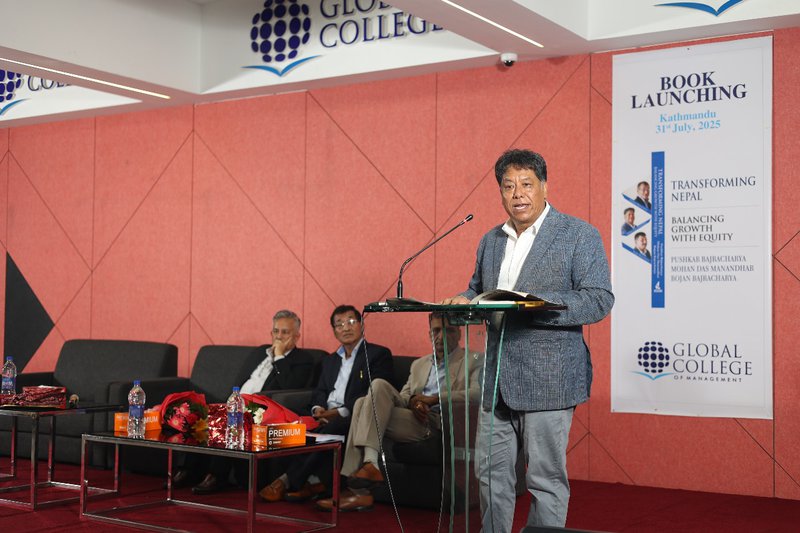
While expressing optimism about modernization and prosperity, the book also questions the lack of a clear economic framework and the country's focus on distributive rather than productive economics. With its extensive academic references, cross-sector trend analyses, and forward-thinking perspectives, the publication serves as a timely and thought-provoking contribution to Nepal's economic and policy development discussions.
The chair of the book launching program, Prof. Dr. Pushkar Bajracharya, and the author of the book stated that the book aims to guide Nepal towards prosperity by providing a critical analysis and recommending a way forward.
Mohan Das Manandhar, another author, emphasized the book's value in shaping development programs and projects in Nepal. In the acknowledgments, Rojan Bajracharya underscored the book's significance for teachers, students, development practitioners, and anyone interested in Nepal's development.
- BEEN PROMOTES: Climate-Adaptive Thermal Comfort Home
- Aug 01, 2025
- Lok Bahadur Thapa of Nepal elected President of the UNECOSOC
- Aug 01, 2025
- Prime Minister's Oli To Participation on LLDC3 In Turkmenistan
- Aug 01, 2025
- Kathmandu-Tarai-Madhes Fast Track Project Makes 42.13 Percent
- Aug 01, 2025
- Weather Forecast: Generally Cloudy Across The Country With Rain At Few Placces In The Terai Region
- Aug 01, 2025

